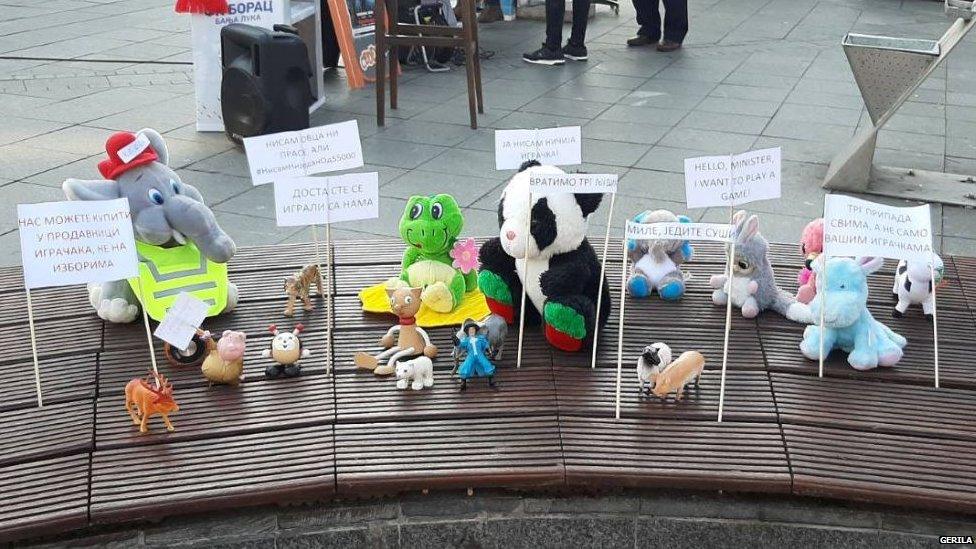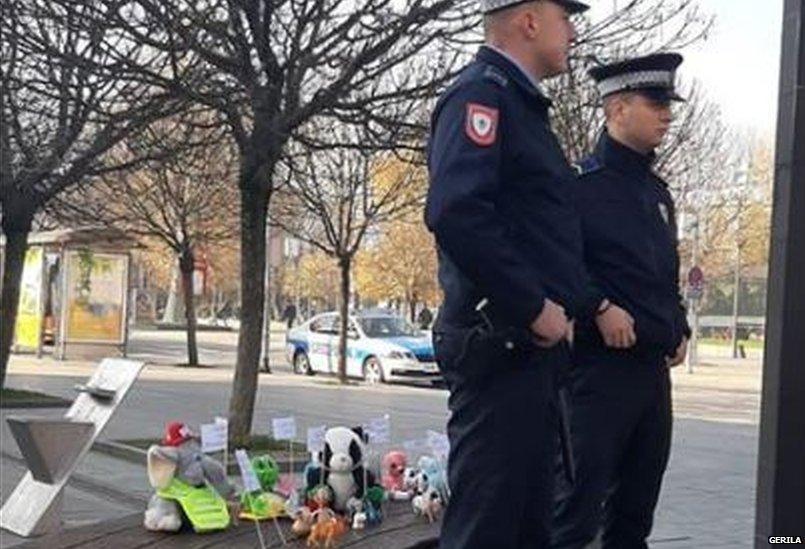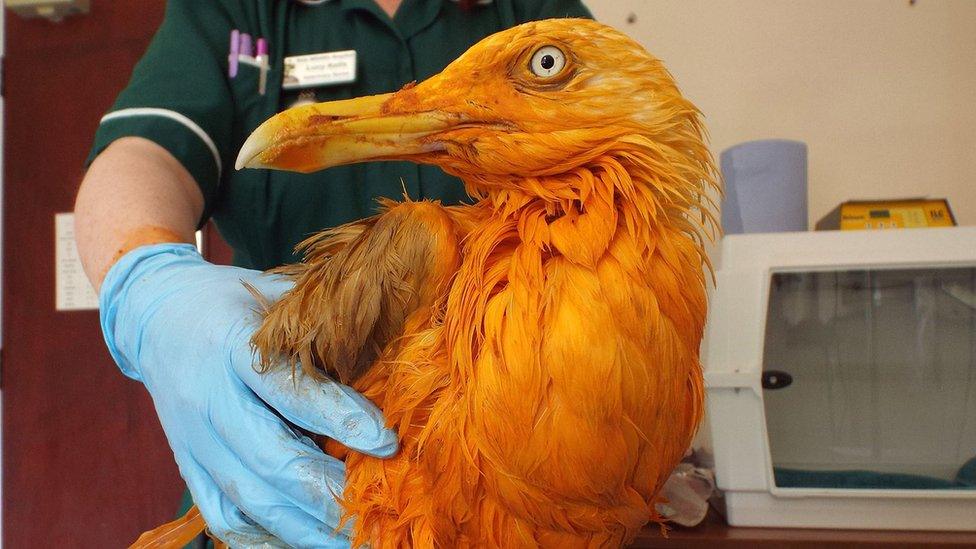Toy 'protest' prompts arrest in Bosnia
- Published

'You can buy us in toy shops, not in elections', one banner reads
A protest art installation involving toys "holding" banners in the Bosnian Serb city of Banja Luka has resulted in the arrest of one of the organisers.
Stefan Blagic, the leader of NGO ReStart Srpska, was detained by police, external after he refused to leave Krajina Square, according to the Buka news portal. He was released later that day.
ReStart Srpska describes itself on Facebook as an organisation which "unmasks the wrong and abnormal processes, external" in Bosnia and Herzegovina.
The soft toys were used to make a tough stance in a square that saw massive protests in 2018 against the government of Republika Srpska, the mainly-Serb entity which makes up Bosnia and Herzegovina along with the Bosnia and Herzegovina Federation.
Following the protests, which at one point turned violent, a de-facto ban on gatherings in the square was introduced.
Ozren Perduv from the Justice for David campaign group told Buka "we wanted to use this performance to draw attention to something that's been happening in Banja Luka for months - the ban on gatherings."
'Enough of toying with us'
The organisers of the Protest Without People event arranged the tiny participants on a bench in the square, along with miniature slogans in defiance of the ban.
"Let's give the square back to the people", read one, while another demanded "enough of you toying with us".
The small gathering was surrounded by police, who proceeded to arrest Mr Blagic.
The officers said they had not been informed about the event as required by the Law on Public Gatherings, and that Mr Blagic was detained for ignoring a direct police order.
You may also be interested in:
The arrest drew public condemnation, with Banja Luka's Rights Centre calling it "absurd".
The European Court of Human Rights, it argued, would deem the decision to interrupt small, peaceful gatherings on the grounds of lack of prior notification as a "disproportionate limitation of freedom to peaceful gathering, external".
Members of the public vented their anger on social media, with some branding the situation "Orwellian". "Things are not like this even in North Korea," one person railed.
"Things will get worse, people, external." warned another. "You keep quiet and passive. That means you are happy with your life which is not a life, a rule which is not a rule, leaders who are not leaders, and freedom that you do not have. What are they doing to you?"
One person hailed the protest organisers as "the real winners, external". "The photo of the two officers guarding a few toys says more than a million words. Bravo, heroes," she wrote.
Why have protests been banned?
The Bosnian Serb authorities have in effect banned gatherings in Krajina Square since the 2018 wave of protests, which ran under the banner Justice for David.
They were prompted by the death in mysterious circumstances of young student David Dragicevic. His family accused the authorities of concealing the truth about his death, which officials have denied.

The police "guard" of the toy protesters has been dubbed "absurd"
But the rallies turned into a wider anti-government movement, becoming a focus of anger about the rule of law, corruption and a stagnant economy.
On 30 December last year, the demonstrations turned violent as police clashed with protesters and dismantled a shrine erected in David's honour.
After the scuffles, an arrest warrant was issued for his father Davor Dragicevic, who went on the run and is now said to be living in Austria.
Since then there have been a number of videos shared on social media of small gatherings being dispersed by police in Krajina Square.
The case of the young man's death, which remains unsolved, external, has gripped Bosnia and Herzegovina, where people have continued to light candles at a church in the city in support of the family and their quest for justice.
Reporting by Vesna Stancic and Krassi Twigg
Next story: Rats trip up Estonia's e-economy
Use #NewsfromElsewhere to stay up-to-date with our reports via Twitter, external.
- Published9 April 2018

- Published9 June 2016
